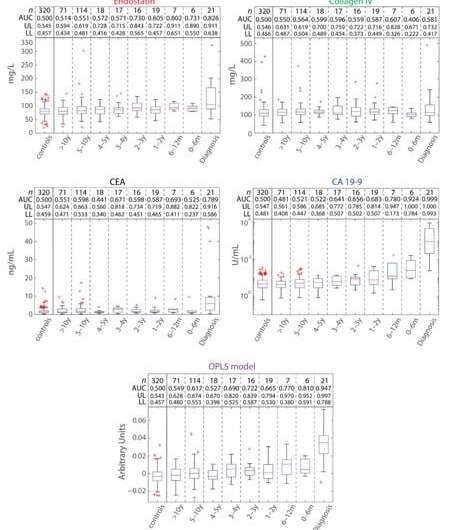
In some people diagnosed with pancreatic cancer, levels of a particular substance in their blood can be seen to start rising slowly as early as two years before the cancer was diagnosed. This is the finding of a study at Umeå University, Sweden. This raises the possibility for future research to find ways to detect the dreaded cancer earlier.
“The finding suggests that changes occur in the body even before symptoms of the disease make themselves known, says Daniel Öhlund,” one of the researchers behind the study.
Daniel Öhlund, associate professor at the Department of Radiation Sciences, and Malin Sund, Professor at the Department of Surgical and Perioperative Sciences, led the work on the current study. The study is based on analyses of patient material collected for the Northern Sweden Health and Disease Study, NSHDS.
“The study shows that with the right markers, it may be possible to detect pancreatic cancer earlier than we do today, and that would be very valuable,” says Malin Sund.
In the study, the researchers have used the blood donated to the research by people in north of Sweden over several decades, and they are now showing that this is a research resource of a magnitude that has few equals in the world.
There are already two known markers in the blood for pancreatic cancer, two proteins called CA19-9 and CEA, respectively. They are effective in monitoring the development of the cancer once it is established.
The problem with pancreatic cancer is that it initially produces only diffuse symptoms and is therefore often detected so late that it is difficult to treat successfully. As a result, the mortality rate for this form of cancer is very high. Finding ways to detect pancreatic cancer earlier would be an important step towards treating it before it is too late, and thus saving lives.
Researchers at Umeå University therefore systematically searched the biobank for people who later developed pancreatic cancer and measured markers in their blood that could show that the cancer was coming. What they found was that a small proportion of people who developed pancreatic cancer had slowly rising levels of the CA19-9 marker from two years before they were diagnosed with the cancer.
However, the researchers were unable to find a marker that was sufficiently early to predict which healthy people were at risk of later developing the cancer. None of the markers they looked for was sensitive enough to be used for general population-level screening.
“There is potential for a blood test to detect pancreatic cancer at a very early stage, but that we need to find more sensitive markers for the disease than we currently have,” says James Mason, one of the study’s lead authors.
About 1,200 Swedes are affected by pancreatic cancer every year. The only effective treatment at present is surgery. For it to be effective, the cancer must not have spread outside the pancreas. Pancreatic cancer has the highest mortality rate.
Source: Read Full Article
